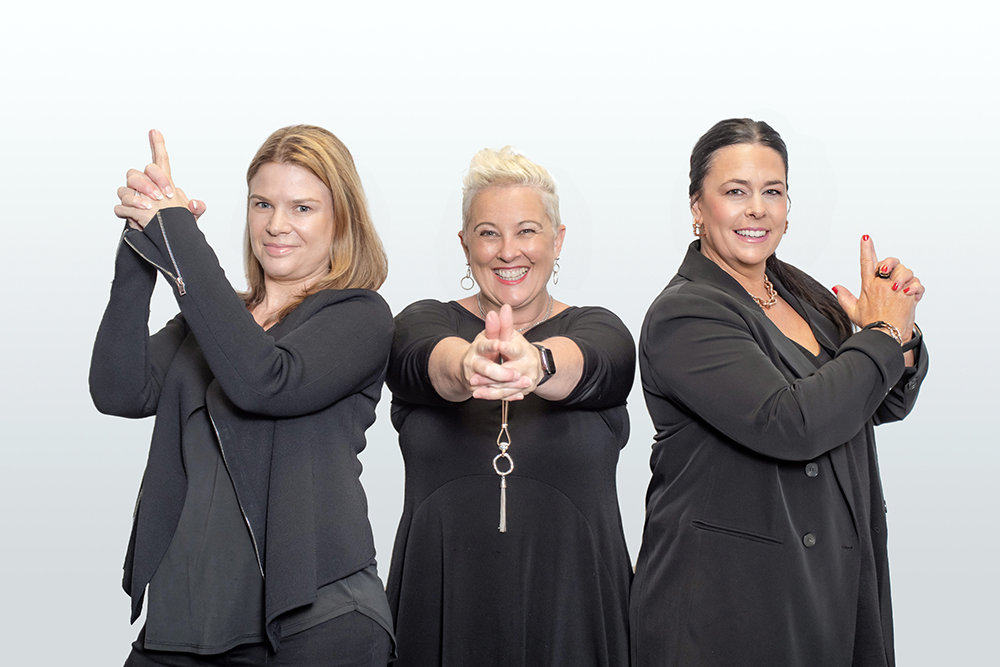Think about a poor customer service experience you’ve had. Either a faulty product, rude employee, maybe a tradesman who didn’t show up. OK, now think about how it was dealt with when you contacted the business to complain. Hands up if you walked away satisfied with the outcome, hands down if you stepped away more frustrated and angry than when you started.
Generally, the hands up group are the ones who got to say their piece about their dissatisfaction, and they were heard. Not just token gesture style listening but everything they said was heard, acknowledged and some form of response was given, or action promised that resolved the matter satisfactorily.
Now I’m going to bet that if we analysed why those who remained unhappy were still frustrated, it’s going to come down to feeling unheard and dismissed.
I reckon you can guess where this blog is going…
Listening and leadership
That’s right. We are taking a look at the power of listening as a key leadership skill.
Take a look online and there is a lot of noise made by leaders. We look to them for quotes, we book them for presentations, we stream TedTalks. By all accounts, leaders do a lot of talking.
And that’s OK. More often than not, great leaders have amazing information and insight to share. They can inspire, educate, and make you question your status quo. Some help you refocus, recalibrate, even reengage with your own career or business. So yes, great leaders should keep talking.
But truly excellent leaders, the ones that build incredible businesses filled with passionate people, make sure they zip it on occasion and listen attentively to their people. In fact, when coaching people to talk less and listen more as a key communication tool, we often use the phrase ‘you have two ears and one mouth; use them in that proportion!’
Seems like I’m stating the obvious: you need to listen when others speak.
The how of listening
But how do you listen? Do you listen to answer, or do you listen to hear? Do you have a predetermined response, or do you jump in with a rebuttal before you allow your employees or colleagues to fully express themselves? Do you ask questions to better understand, or do you dismiss the communication because it’s not YOUR experience or perspective? Do you make time to have conversations with team members individually or do you make yourself unavailable and unapproachable. Are you open to hearing new ideas or is it business as usual because ‘if it ain’t broke then it don’t need fixing’?
Here's the deal. If you aren’t listening to your people, they aren’t feeling heard. And people who feel repeatedly unheard will ultimately feel disengaged, unappreciated, frustrated, annoyed, disappointed…. You get the idea.
Listening isn’t always a natural skill even for the best leaders. Sometimes, it needs to be a conscious decision you make to stop and hear, and it may require practice. But hey, if you aren’t learning and honing new skills, are you really living?
There are plenty of ways you can listen to your employees from satisfaction surveys to one on one conversations. But, and I cannot stress this enough, if you show your employees that you are listening, then it better be genuine. I think we all know what it feels like to walk away from a conversation and know in your heart that you were not heard despite all the noise the other person made about hearing you.
Feeling heard
A really thorough study called Feeling Heard: Experiences of Listening (or Not) at Work, found there were three ways listeners behaved that left people feeling unheard that the study labelled as follows:
- Shutting down – evident early in a conversation as the listener provides cues they are unwilling to listen. Perceived as rejection by the speaker.
- Superficial listening – while initially showing signs of hearing what is being said, it becomes clear that the interaction is not genuine.
- Distracted listening – we all know this one, but it occurs when the listener is distracted by something rather than concentrating on the conversation at hand. Ever had a chat with someone who is fiddling with their phone? Yep, distracted.
Words AND actions!
Both verbal and non-verbal cues factor into making someone feel unheard so be careful about pretending to listen and make sure you put down your phone or turn your computer monitor away or you could risk creating a negatively impactful interaction. Do these enough times and you could have a major morale issue on your hands with a demotivated team peppered with high turnover (you do not even want to think about what that will cost your business!).
It's all in the follow up
Following up or acting on information after listening is vitally important if you are serious about listening to your team. If you’ve taken the time to hear what an employee has to say and you assure them that you will act on the idea or feedback and you do, you are sending a clear message that you heard them and you value their input. Disappointment is the other side of this coin when you don’t follow through or respond to their suggestions. Integrity in leadership is about ‘doing what you say you will do’.
Don’t mistake genuinely listening with a requirement to agree to do anything. Sometimes listening needs to be just that. Your employees (and colleagues) need to be heard; that doesn’t mean that you need to agree or change anything. You need to show empathy and understanding, and sometimes even provide explanation (rather than defensive push back) to help them see things in a different way. However, you should always sincerely listen to what’s being said and consider whether things need to be different – the best leaders are always looking for continuous improvement – from themselves and others, so adapting to meet the needs of your team, especially when you can see (and hear!) that it will have a positive impact, should always be considered.
Now you might be thinking “Whatever HR Staff n’ Stuff, my employees know I value them, and they get to say their piece all the time.” Possibly this is true, but are you really hearing what they say? Could 2024 be the year that you take your listening prowess to the next level? You may be surprised by what it brings to your business!







